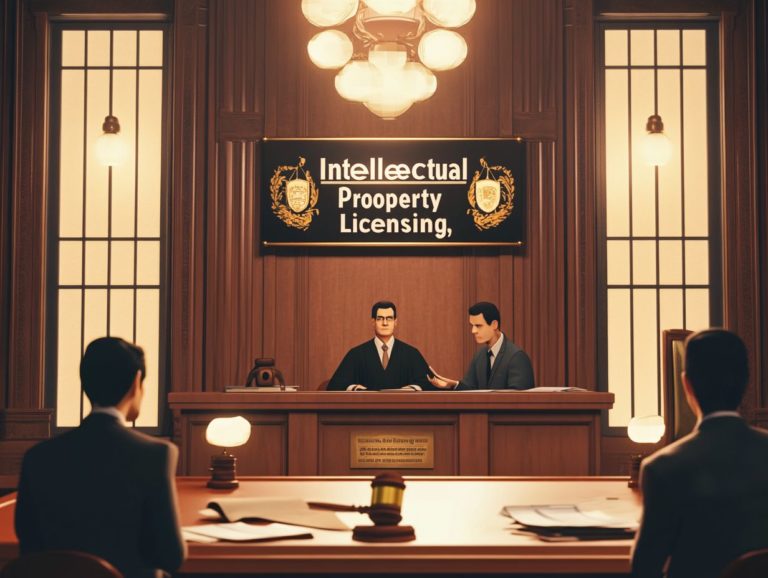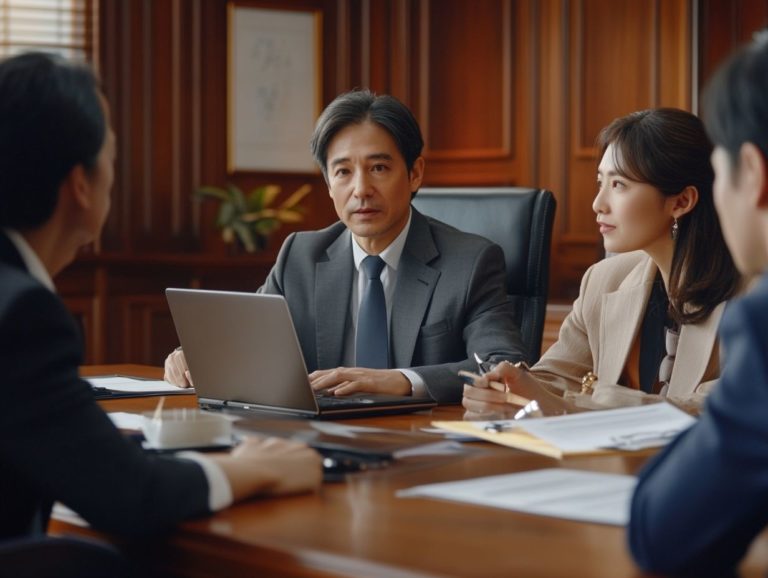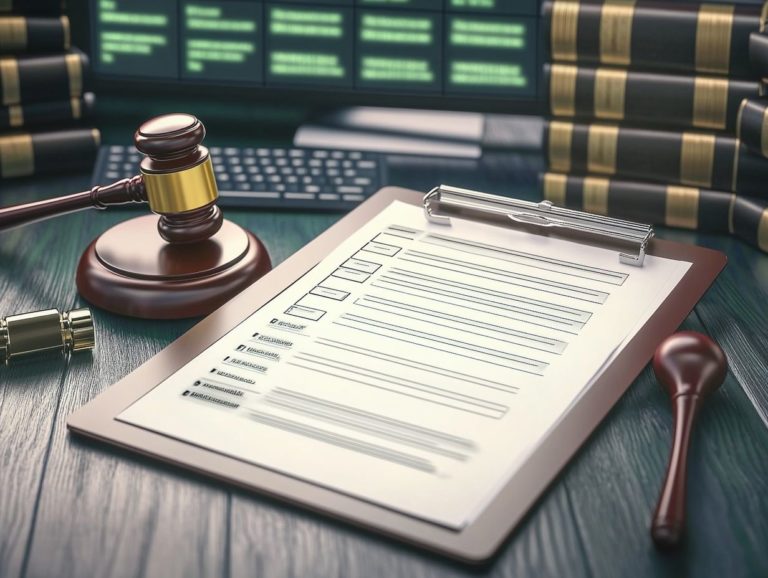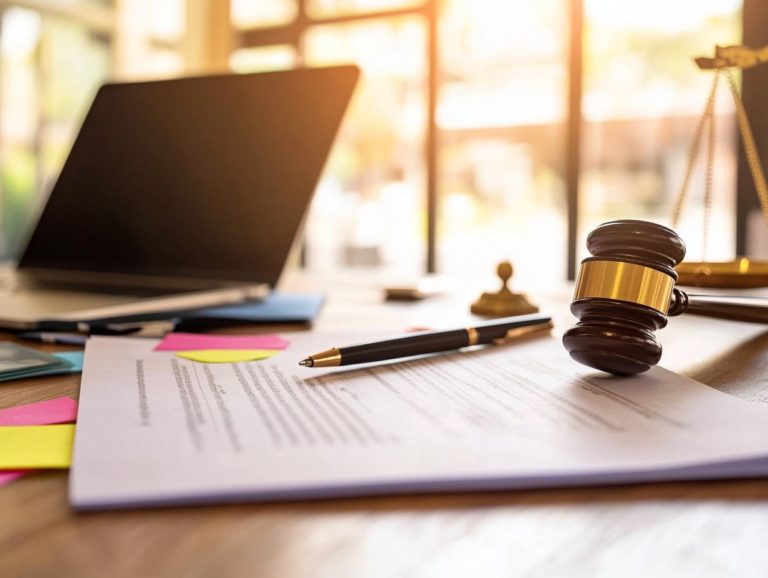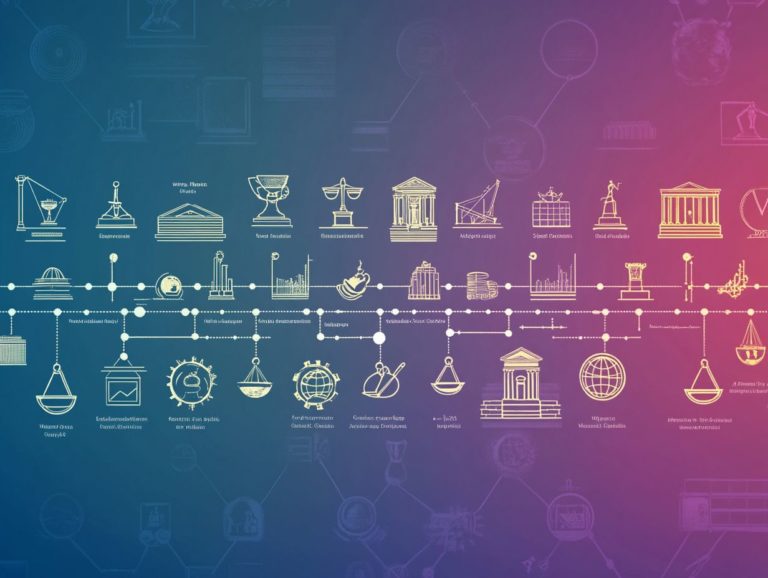Understanding the Role of Licensing in Litigation
Licensing holds a crucial role in the legal landscape, shaping the trajectory and outcomes of various litigation cases.
From intellectual property to commercial contracts, different types of licenses can significantly impact disputes and their resolutions.
This article explores the intricacies of licensing in litigation, highlighting common issues, best practices, and emerging trends.
Whether you are a legal professional or simply curious about the intersection of licensing and law, this guide offers valuable insights to deepen your understanding and refine your approach to these complex matters.
Contents
- Key Takeaways:
- Defining Licensing and Litigation
- Types of Licenses Involved in Litigation
- The Importance of Licensing in Litigation
- Common Issues and Disputes Related to Licensing in Litigation
- Best Practices for Licensing in Litigation
- Future Trends and Developments in Licensing and Litigation
- Frequently Asked Questions
- What is the role of licensing in litigation?
- Why is understanding the role of licensing important in litigation?
- What types of intellectual property can be licensed in litigation?
- How does licensing impact the outcome of a litigation case?
- Who is responsible for setting the terms of a licensing agreement in litigation?
- What happens if a party violates the terms of a licensing agreement in litigation?
Key Takeaways:
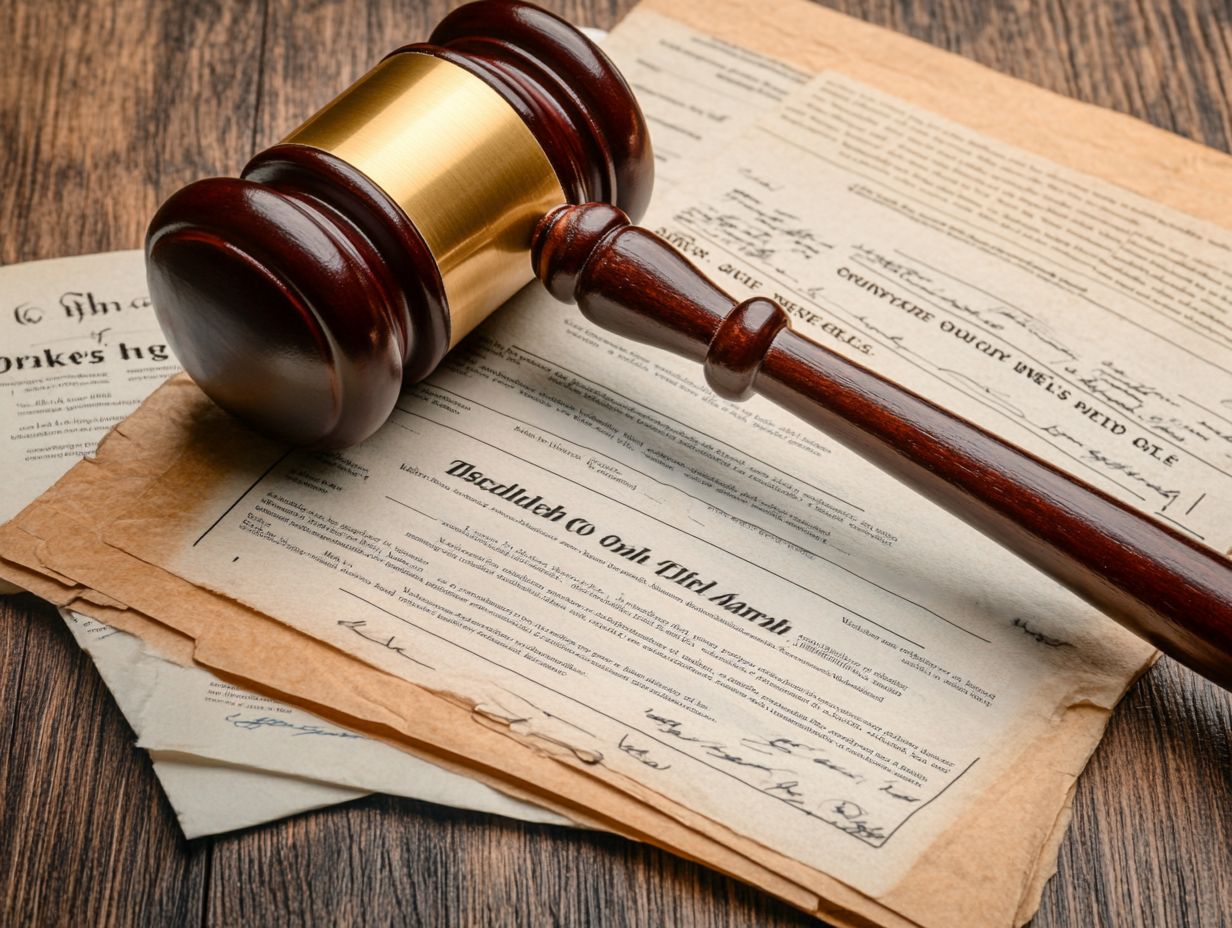
Licensing plays a vital role in litigation cases, dictating the rights and usage of intellectual property.
Different types of licenses can impact litigation outcomes, making it important to understand and carefully consider the terms and conditions.
To ensure successful licensing in litigation, address common challenges and follow best practices, while staying updated on future trends and developments in the industry.
Defining Licensing and Litigation
Licensing and litigation meet at a key point in intellectual property law, where disputes often arise from breaches of contract or copyright infringement.
It’s essential to seek expert legal advice and encourage effective communication between those granting licenses and those receiving them. Licensors grant licenses while licensees receive them.
A clear understanding of the scope of a license agreement is vital for protecting ownership rights, monitoring compliance, and documenting all interactions to preserve evidence for potential disputes.
Given this complex landscape, securing legal representation is crucial for navigating the intricacies surrounding licensing.
Types of Licenses Involved in Litigation
In litigation, various types of licenses play important roles. Trademark licenses, copyright licenses, and specific licensing agreements can be central to significant disputes if not managed properly.
These licenses dictate ownership rights and establish exclusive rights that often form the basis for legal battles. Engaging skilled legal representation is essential for navigating compliance issues that arise in this area.
Exploring Different Types of Licenses
Understanding the various types of licenses such as software licensing agreements, trademark licenses, and copyright licenses is critical for navigating intellectual property law and mitigating potential disputes.
Each type serves a unique purpose, influencing how you, as a creator or business, can utilize your intellectual property.
For instance, software licensing agreements outline how users can access and utilize software tools, while trademark licenses govern the authorized use of brand identifiers. Copyright licenses grant rights for reproducing creative works like literature or music.
The legal implications of these licenses can vary significantly, impacting compliance monitoring strategies and ownership rights in legal disputes.
By understanding these nuances, you can protect your intellectual property and enhance your ability to navigate any disputes that may arise.
The Importance of Licensing in Litigation
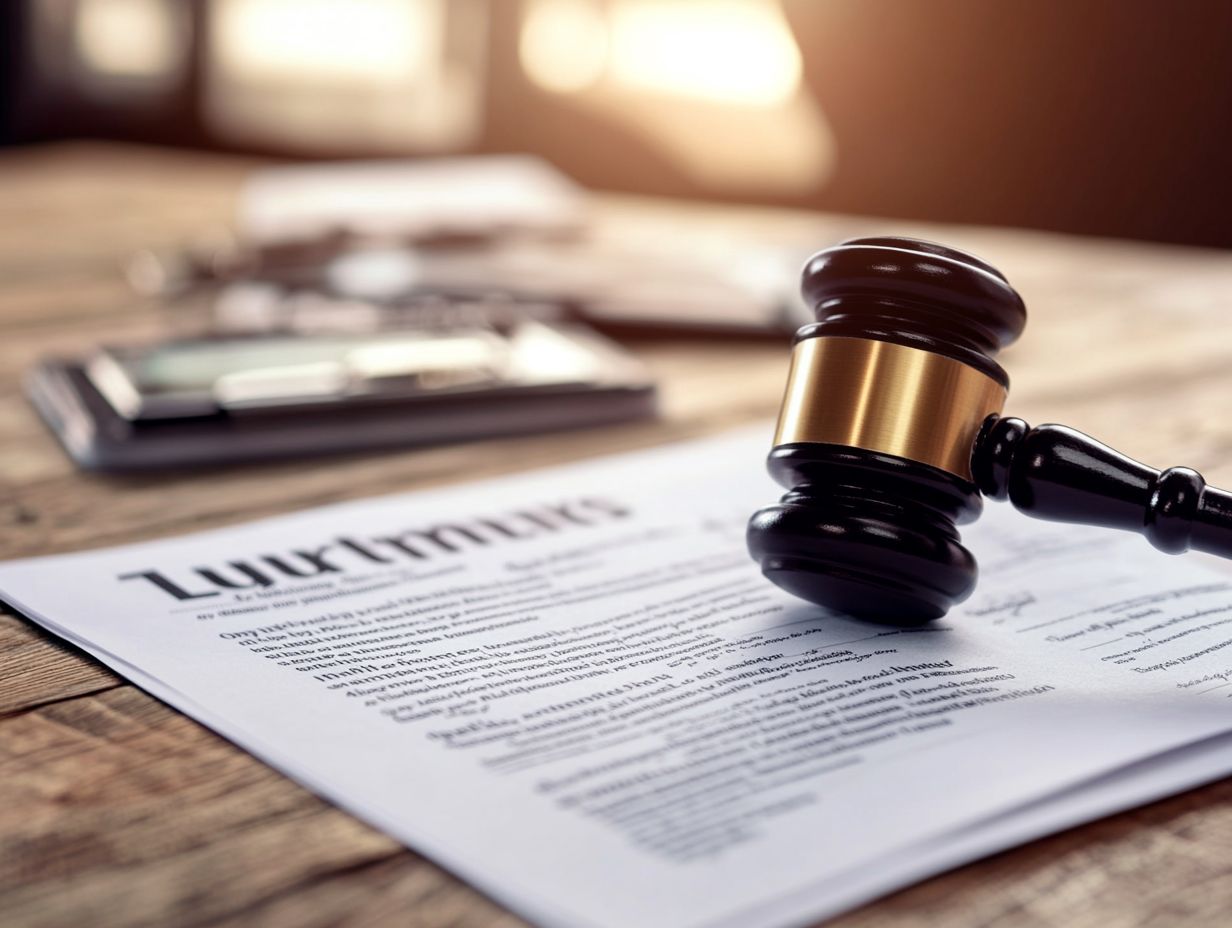
Licensing serves a vital function in litigation, establishing the foundational framework for legal rights and obligations among the involved parties, including understanding the role of the jury in IP litigation.
This framework affects financial liability and compliance, making effective communication and sound legal advice essential for successful dispute resolution.
Grasping the details of licensing agreements is not just important; it s vital for protecting your ownership rights and minimizing litigation risks.
How Licensing Can Affect Litigation Outcomes
The terms in licensing agreements can significantly influence litigation outcomes. This is especially true in breach of contract cases where timely communication and skilled legal representation are vital.
Licensing agreements define the obligations and rights of each party. If there is any ambiguity, it can lead to different interpretations, complicating the litigation process.
For instance, if a licensing fee clause is poorly defined, it may escalate disputes. One party might believe they are entitled to adjustments that the other does not acknowledge.
In such cases, having experienced legal counsel clarifies these points. They also assist in negotiations, enhancing understanding between the parties.
A strategic approach to communication can often prevent significant legal conflicts. It guides both sides toward mutually beneficial resolutions.
Common Issues and Disputes Related to Licensing in Litigation
Disputes surrounding licensing in litigation often arise from allegations of breach of contract, copyright infringement, and misunderstandings about audit provisions.
These disputes can result in substantial financial liability for licensors and licensees. To navigate these challenges, employ strong negotiation strategies and conduct thorough risk assessments.
Addressing Common Challenges
Addressing challenges in licensing disputes requires effective negotiation tactics and meticulous documentation. Strategies for preserving evidence are also essential.
Navigating these situations presents hurdles like varied interpretations of terms or differing objectives between parties. Using proactive communication strategies is key to ensuring all stakeholders feel heard.
Establishing a solid documentation framework guarantees clarity regarding agreements and expectations. This minimizes misunderstandings.
Implementing compliance monitoring helps detect and resolve issues early. This approach maintains relationships and builds trust.
By focusing on these areas, all parties can cultivate a collaborative atmosphere, leading to advantageous resolutions.
Best Practices for Licensing in Litigation
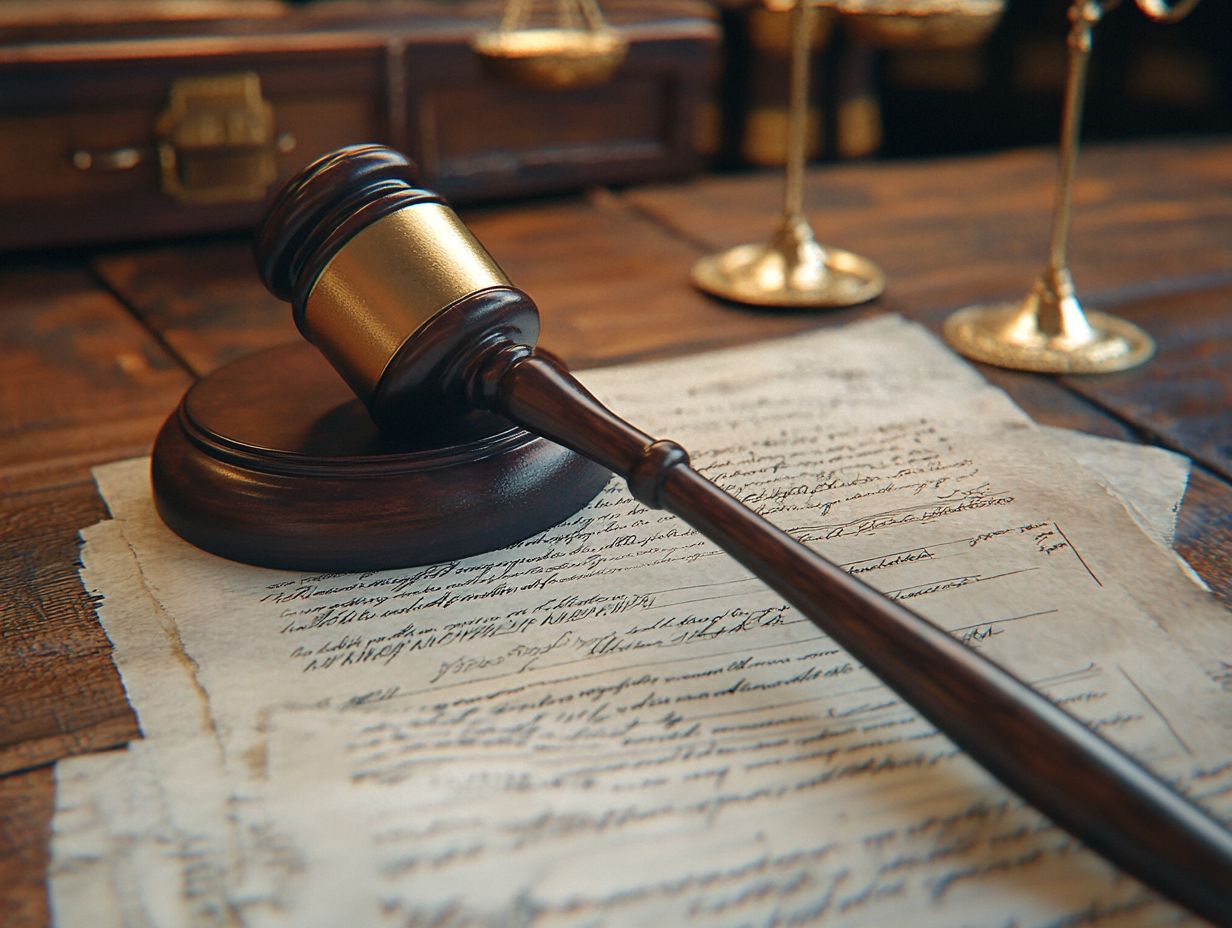
To implement best practices for licensing in litigation, utilize well-structured licensing agreement examples. Adhere to compliance regulations and seek expert legal advice.
This approach ensures effective communication and proactive measures, minimizing disputes before they escalate.
Tips for Successful Licensing in Litigation Cases
Want to win in litigation cases about licensing? Here s how! Employ effective negotiation strategies, maintain meticulous documentation, and secure skilled legal representation.
Mastering these components will streamline the process and enhance your chances of favorable outcomes. Approach negotiations thoughtfully and be prepared to compromise while defending your interests.
Documenting every relevant detail reinforces your claims and counterclaims. Having experienced legal counsel is crucial for navigating complex laws and protecting your rights.
Facilitating open communication fosters trust and collaboration, minimizing misunderstandings. By integrating these strategies, you’ll be better positioned to confront litigation challenges and pursue licensing resolutions.
Future Trends and Developments in Licensing and Litigation
As technology advances, expect future trends in licensing and litigation to reshape the legal landscape. This evolution will emphasize technology sharing, market expansion, and the importance of alternative dispute resolution (ADR) mechanisms.
Anticipated Changes and Impact on the Industry
Anticipated changes in the licensing field, such as a greater emphasis on compliance and evolving negotiation strategies, are poised to significantly impact how you approach legal representation in litigation contexts.
As new regulatory frameworks emerge, you must adapt to these shifts. This prompts a thorough re-evaluation of your existing legal strategies.
It’s important for you to refine your skills to navigate complex compliance requirements. This ensures that your clients are not only well-informed but also shielded against potential legal repercussions.
This evolution may lead to a heightened demand for specialized knowledge in licensing law, compelling you to remain proactive and engaged.
This evolution will transform the landscape of legal representation, prioritizing agile and comprehensive solutions that effectively address client needs while keeping pace with the ever-changing industry dynamics.
Frequently Asked Questions
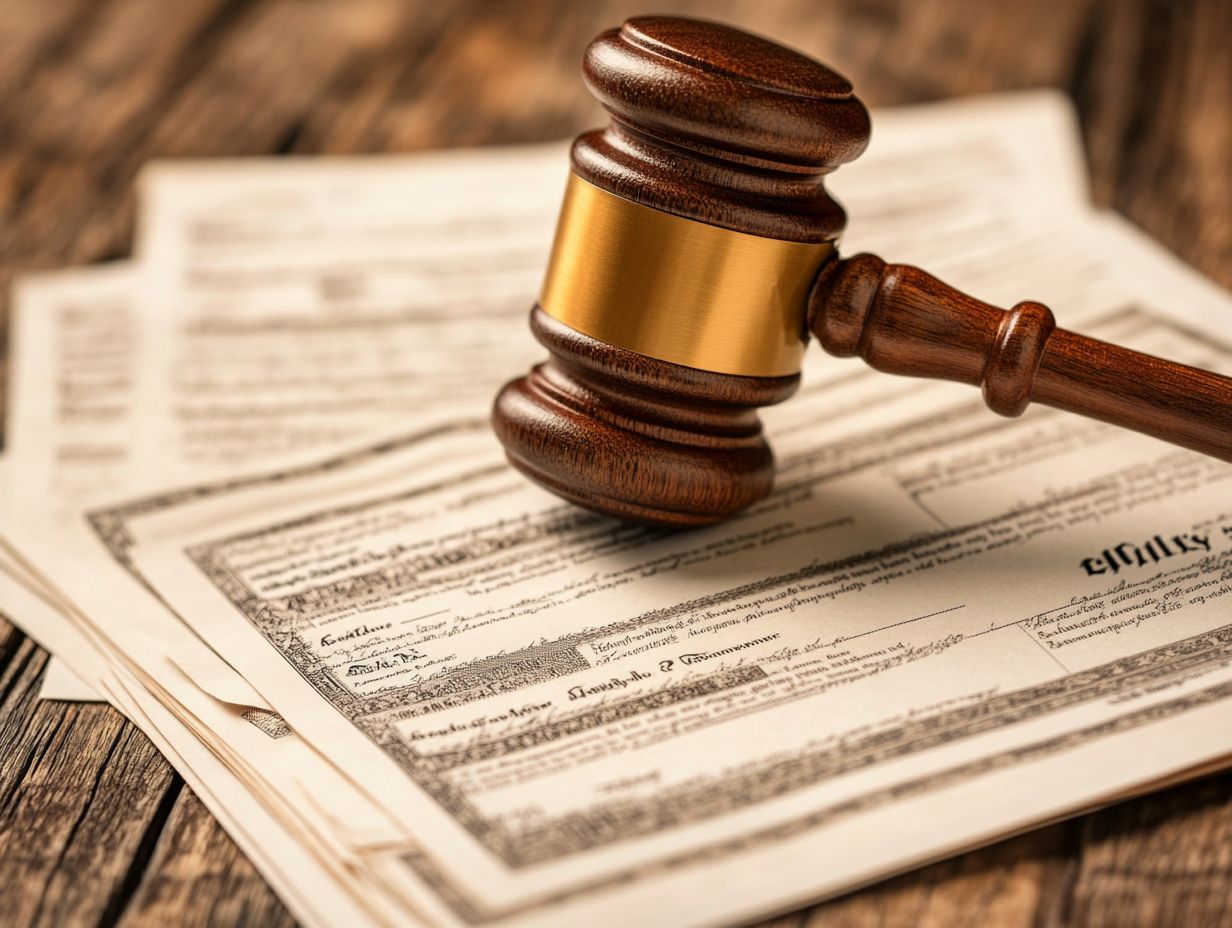
What is the role of licensing in litigation?
Licensing plays a crucial role in litigation by regulating the use and distribution of intellectual property. Intellectual property includes creations like inventions, designs, and brands. Licensing ensures that the rights of owners are protected and that proper compensation is received for the use of their property.
Why is understanding the role of licensing important in litigation?
Understanding the role of licensing is important in litigation because it helps parties involved in the dispute to have a clear understanding of their rights and obligations related to the use of intellectual property. For more insights, consider understanding the role of the court in IP litigation. This knowledge can prevent potential legal disputes and ensure fair compensation for all parties involved.
What types of intellectual property can be licensed in litigation?
The most common types of intellectual property that can be licensed in litigation include patents, trademarks, copyrights, and trade secrets. These can be licensed for use in various industries, such as technology, entertainment, and manufacturing.
How does licensing impact the outcome of a litigation case?
Licensing can greatly impact the outcome of a litigation case by determining the extent of permissible use of intellectual property, the duration of the license, and the amount of compensation to be paid. It can also affect the strength of a party’s legal argument and the likelihood of reaching a settlement.
Who is responsible for setting the terms of a licensing agreement in litigation?
The terms of a licensing agreement in litigation are typically set by the owner of the intellectual property. However, negotiations between the owner and the licensee can also influence the terms of the agreement.
What happens if a party violates the terms of a licensing agreement in litigation?
If a party violates the terms of a licensing agreement in litigation, the other party can take legal action to enforce the terms and seek damages. This can include seeking an injunction to stop the unauthorized use of the intellectual property or pursuing monetary compensation for the violation.

